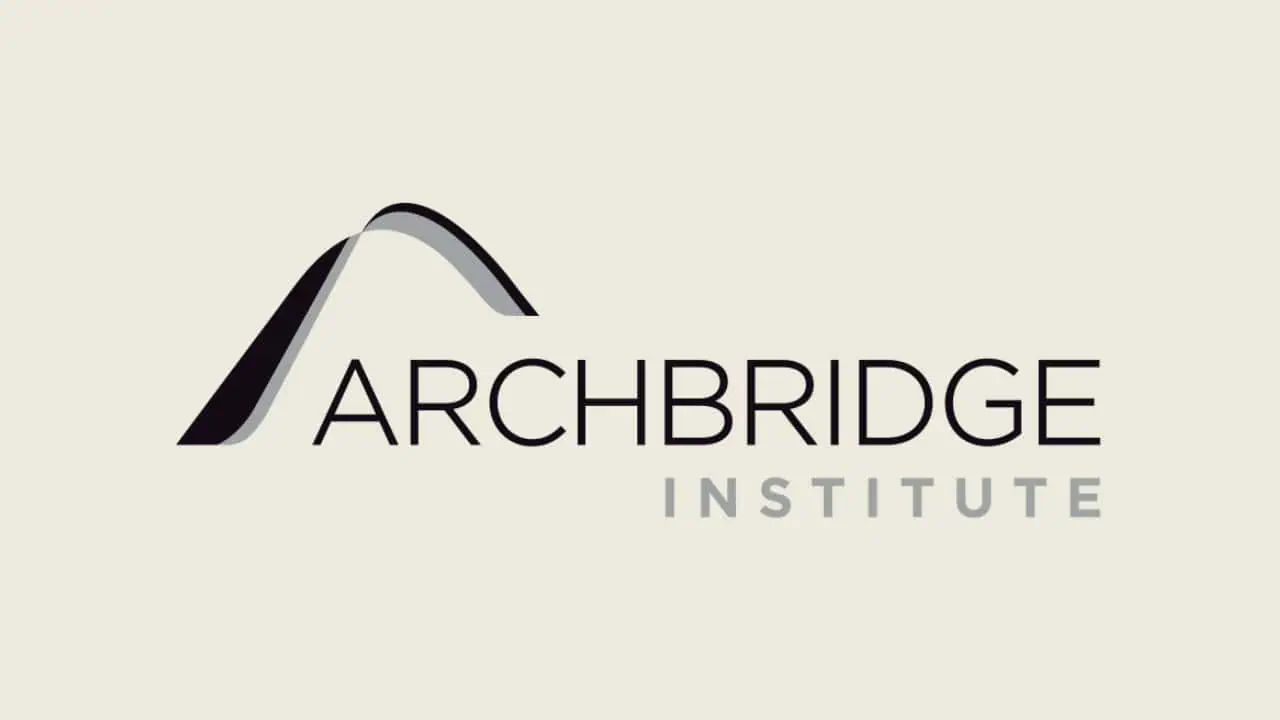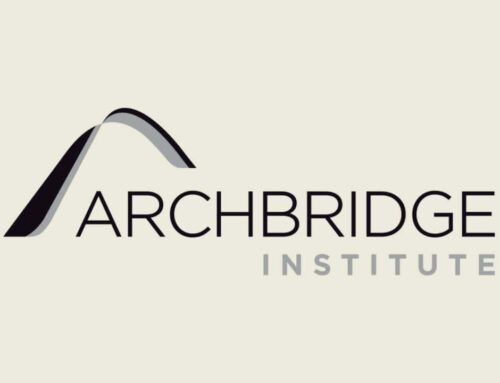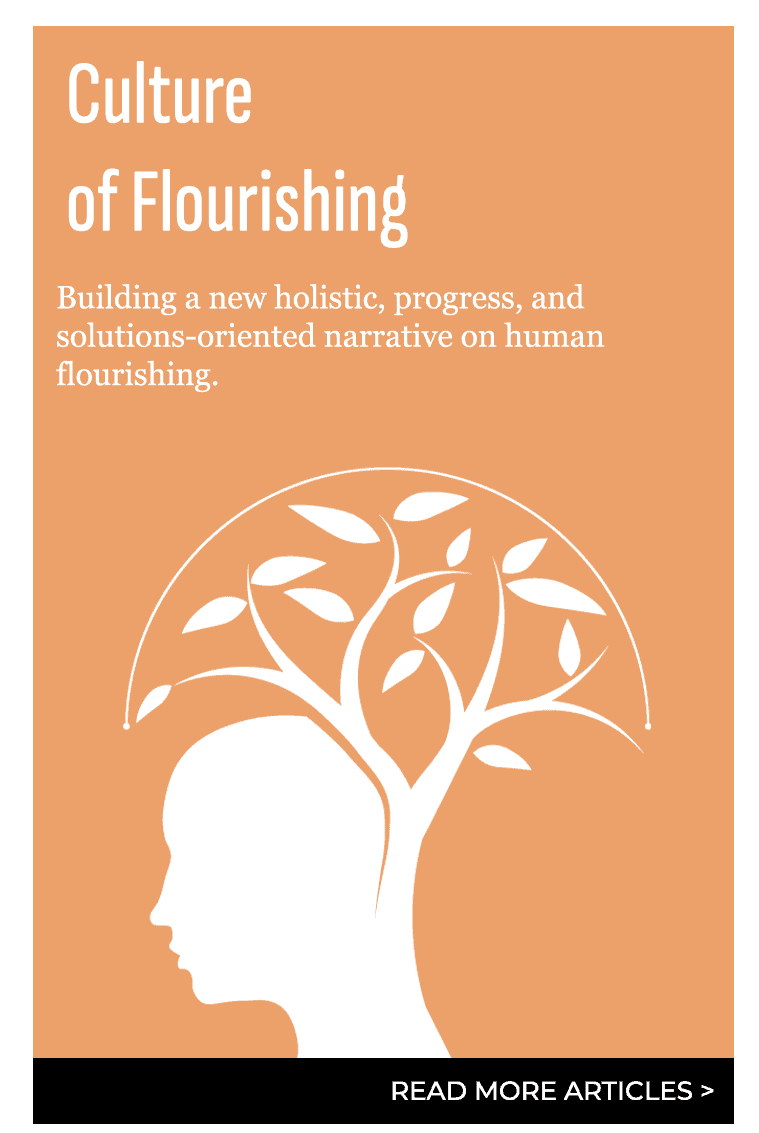
The Archbridge Institute’s Human Flourishing Lab is pleased to welcome Paul Anleitner as a new religion and culture fellow.
Anleitner is a cultural theologian who focuses on the role of culture and story in the human quest for meaning. His unique interdisciplinary approach integrates theology, philosophy, and science to help individuals and institutions navigate cultural shifts and address perennial religious longings. He holds an M.A. in Christian Thought from Bethel Seminary, where he graduated with highest honors.
He hosts Deep Talks, a podcast on religion, culture, and meaning with over 1 million downloads, and he produces a weekly newsletter called Reading the Zeitgeist. His forthcoming book, tentatively titled “The Return to Meaning,” is expected in 2026.
On Paul Anleitner’s addition as a Human Flourishing Lab fellow, Director Clay Routledge said:
I’m absolutely thrilled to welcome Paul to the Human Flourishing Lab. I’ve long admired his work examining how cultural storytelling, religious and spiritual traditions, and humanity’s search for meaning intersect. His multidisciplinary approach weaves together insights from theology, anthropology, psychology, and related scholarly fields. What I find particularly compelling about his work is his ability to connect these frameworks to popular culture, illuminating the pressing struggles we navigate in our supposedly secular age while making complex ideas accessible to broad audiences. At the Human Flourishing Lab, we promote a holistic view of well-being, and I’m confident Paul will significantly advance that vision by bringing essential perspectives on religion and culture that deepen our understanding of how meaning and purpose shape human flourishing.
To introduce himself, Anleitner participated in an interview with Dr. Clay Routledge, Vice President of Research and Director of the Human Flourishing Lab at the Archbridge Institute:
First off, what is a cultural theologian?
Cultural theology is a unique discipline within the field of theology that formally developed in the 20th century when people like H.R. Neibuhr and Paul Tillich argued that in an increasingly secularized West, religious longings and pursuits could still be observed all around us in ways that weren’t all that different from what you find within the walls of a church. So, a cultural theologian analyzes “cultural texts” like films, music, and literature for signs of a culture’s underlying beliefs, values, and spiritual longings.
Tillich argued that religion is best understood as what someone believes should be of “ultimate concern,” and so I’m fascinated by the ways in which culture reveals and shapes what we believe should be of ultimate concern.
Much like the Archbridge Institute, you bring a multidisciplinary perspective to today’s challenges. What does this integrated approach reveal about human flourishing?
Years ago, I was introduced to the work of Robert Kegan on cognitive development. He was the first person I saw use the term “meaning-making,” and it stuck with me. Meaning-making seemed to provide an all-encompassing term for the various processes and disciplines by which we attempt to make sense of the world and our place in it. The lines between disciplines like theology, philosophy, and even psychology, at times, always seemed a little blurry to me. What I was really after, even in my academic pursuits, was that innate longing for meaning and wisdom.
Being competent enough to be conversant across several different disciplines is particularly helpful when the goal of your pursuits is wisdom, not merely a specialized academic career. Wisdom is about discerning the way that best leads to flourishing, and I am very much interested in the recovery of what it means for all of us, whether you are a plumber, teacher, or a truck driver, to be a philosopher—a lover of wisdom.
Through your public writing and the Deep Talks podcast, you share your ideas with a broad audience. What do you hope to achieve as a cultural and scientific communicator?
My audience has evolved over the years. Early on in my public-facing work, I was more focused on helping people who had come from similar religious contexts as me to access better theological, philosophical, and scientific resources. I taught in a traditional classroom for over a decade and saw podcasting as a new classroom.
However, as that work began to garner wider attention, I discovered an exciting sense of openness from other sojourners on a quest for meaning, who came from other religious traditions or even identified as non-religious, and were also interested in exploring these ideas.
My mission is to help people read the cultural moment, make sense of their lives, and move from cynicism to hope. I love helping people read and interpret the guiding stories that surround them in culture, empowering them to critically assess whether they are basing their own lives on a true story.
Your forthcoming book is tentatively titled “The Return to Meaning.” Without giving away the plot, can you set the scene on how our search for meaning has evolved over the past decades and where we find ourselves now?
Yeah, that tentative title gives people a good sense of the book’s core thesis (though we may also go with Vibe Shift instead, that’s TBD by Harper-Collins/Nelson Books). Our own narrative identities are shaped by the guiding stories of our cultural moment, and since the ‘90s, American culture has undergone a radical change in our guiding stories to something I call the “anti-story.” The formative power of that anti-story on our souls was a meaning-crisis and a fundamental disposition of cynicism. So the book traces the ways we have seen that in culture and its impacts, but it actually isn’t about deconstruction and cultural decline. Telling that part of our recent cultural history is important, but it’s not the final word.
The book really focuses on how we’ve bottomed out on cynicism and how there are signs all around us of a return to meaning, sincerity, and religious renewal in this new cultural moment. I take readers through signsin pop culture phenomenon, such as the unexpected resurgence of sincere ‘90s/’00s rock band Creed starting in 2023 (and how I predicted it before it happened). I also share compelling stories of people whose personal lives mimicked this broader pattern of chaotic deconstruction giving way to positive reconstruction, and I detail some hopeful new data that’s emerged showing cultural and spiritual renewal is happening.
Oh, and as you know, Clay, your own research on the science of human meaning, nostalgia, and flourishing plays a pretty big role at several points in this book. Expect to see it at bookstores in either the spring or fall of 2026.
What excites you about partnering with the Archbridge Institute’s Human Flourishing Lab?
Since our first interview years ago, Clay, I have felt a natural overlap between your fields of study and my areas of interest. I contributed to Profectus Magazine in the past, and we also co-authored an interesting piece on Star Wars and religion a few years ago, so I felt that we each had our own unique lenses through which we were shining a light on a similar human phenomenon. Institutions are made up of people, and so when considering collaborating with an organization, you’re not partnering with a disembodied idea; you’re partnering with particular people.
This might feel like flattery, but it’s genuine: the opportunity to collaborate with people like you towards the goal of maximizing the flourishing of others in a way that has deep alignment with so many of my own values is a no-brainer. I want my grandchildren to inherit a better world, and I believe the work happening at the Human Flourishing Lab is doing just that.
What projects and ideas can we expect to see during your fellowship? Any teasers?
Years ago, cultural theologian Robert K. Johnston in his book Reel Spirituality: Theology and Film in Dialogue made a passing observation about the statistical correlation between the rise of the home video store in the ‘80s and the decline of church attendance in the U.S. Obviously correlation doesn’t equal causation, but the function of movies and streaming series serving as a kind of alternative religious guiding story and ritual has fascinated me, and I believe it deserves more attention. U.S. households now consume, on average, more than 43 hours of digital video each week.
Understanding the impact of this on the typical existential questions and drives we associate with the religious pursuit deserves more scientific research. Is Hollywood replacing the role of sacred texts and church sermons in people’s lives? Is it complementing people’s religious faith? I’m really interested in finding more than just theoretical answers to these kinds of questions.
Another thing I know we’ve talked about is doing more research into how typical religious practices like weekly worship and community acts of service affect mental health outcomes, especially compared to treatments like cognitive behavioral therapy. We know that rumination increases depressive symptoms, and you’ve been doing work on more outward-facing therapies and their benefits in treating depression. I’m fascinated from years of serving on staff at a number of churches how, for men in particular, just getting them to do typical church things—even if they aren’t certain about all the metaphysics and theology—improves their mental health.
For years, an unnecessary science vs. faith divide kept us from integrative research between scientists and theologians on these sorts of questions. That divide seems to be coming down, and I think that will lead to all sorts of exciting new research possibilities and contributions to human flourishing.
Sign up for our free newsletter to receive the latest updates from the Archbridge Institute. We’ll send you two emails per month with a round-up of our best research, news, and commentary.



